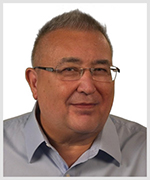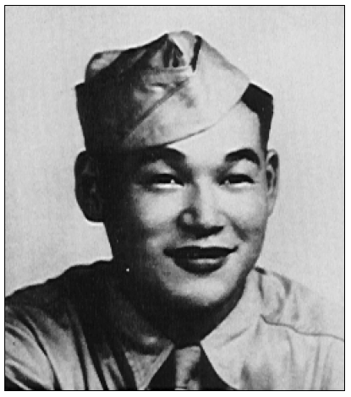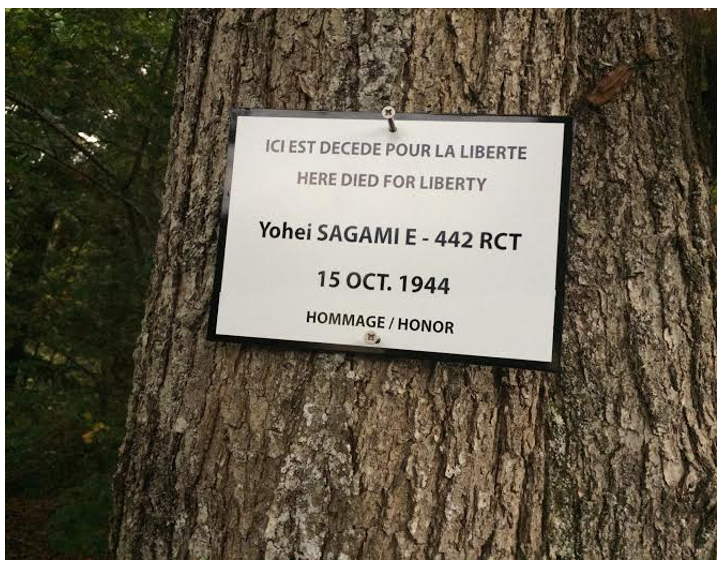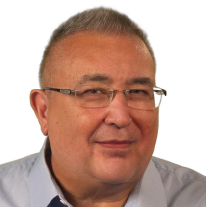 |
| By Tony Sagami |
What do you have planned for Memorial Day weekend? Hitting the beach? Planning a family barbecue? Watching a ball game?
Whatever your plans, I hope you enjoy yourself. But I hope you also take a few moments to reflect on the true meaning of Memorial Day.
Memorial Day, originally known as “Decoration Day,” was created in 1868 to commemorate the Union and Confederate soldiers who died during the Civil War.
Today, it honors all the Americans who sacrificed their lives for our country. But the true meaning of Memorial Day has been gradually overlooked by many.
For many, Memorial Day has become an extra day off from work that includes hot dogs, burgers and baseball rather than a solemn day to reflect and remember the brave men and women who gave their lives for America’s values and freedom.
Here’s how former President Ronald Reagan put it:
Freedom is never more than one generation away from extinction. We didn’t pass it on to our children in the bloodstream. The only way they can inherit the freedom we have known is if we fight for it, protect it, defend it, and then hand it to them with the well-thought lessons of how they in their lifetime must do the same.
For me, Memorial Day is a solemn day.
America is a nation of immigrants. Most of us can trace our roots to some place other than the United States. For many Americans, this means European ancestry.
I can’t claim any lineage to the Mayflower, nor did any of my ancestors cross the vast Midwest prairie in covered wagons. Like yours, however, my ancestors came to America in search of a better life.
My grandfather, Fusakichi Sagami, was from Hiroshima, Japan. He traveled across the Pacific Ocean in 1893 as a kitchen helper on an American sail-powered freighter. He continued to work in kitchens on any ship that would hire him, including a short stint on the naval schooner USS Augusta.
 |
In 1906, he married Mitsu, a picture bride, started a small vegetable farm in western Washington, and had 10 children, including my father, Ken.
Fusakichi, Mitsu and their 10 children were among the 110,000 American citizens of Japanese ancestry held in internment camps during World War II, and, despite being unjustly imprisoned and stripped of his land, Fusakichi believed so strongly in America that he ordered all his sons to volunteer for the U.S. Army.
“You may die, but you must do this to prove that we are loyal to America,” he told his eight sons from behind the barbed-wire walls of the Minidoka War Relocation Center in Idaho.
Six of the eight Sagami boys joined the U.S. Army, and all six of them fought in the highly decorated 442nd Infantry Regiment.
My family was fortunate. Only one of those Sagami boys, Yohei Sagami, was killed. He died in France in 1944.
Another soldier saw Yohei killed and described it for posterity:
So artillery shells, now I hear this one coming in, boom. That was incoming. I found out what incoming was.
But when you hear it, little fluttering going on, that’s outgoing, that was our guns going. But when you hear something go [makes sound effect], that’s incoming.
So when that came in, blew me up and I was over there, 10 feet, and ached all over, and got up, sores all, looked, and I got a nick here.
But I looked down, Yohei Sagami from Wenatchee, Washington, was talking; we were talking what are we going to do when we get out and this and that.
He’s laying down, facedown, I picked him up, turned him over, he got hit in the jugular vein, and the pulse, blood was coming out every time he’d, pulse beating. And I couldn’t stop it without choking him.
I tried to put a pad on there, but still, he couldn’t breathe, and had relaxed, but blood was coming out. Medics came, but he died, he’d lost too much blood, he died.
So that was my, one of my first buddies dying.
Yohei Sagami was posthumously awarded a Silver Star and Bronze Star. He was 22 years old, never married, no children.
 |
Family friends tell me that my grandmother was never the same after Yohei died. She wore his dog tags around her neck and rubbed the metal completely smooth over the next 50 years of her life.
It was almost like she was self-medicating the hole that his death left in her heart.
Stand for Uncle Sam
Yohei is buried in Tacoma, Washington, next to Fusakichi and Mitsu Sagami, and about 100 feet away from my father and mother.
I never met my Uncle Yohei, but our family continues to honor his service and sacrifice every Memorial Day. In fact, I came within a whisper of joining the military myself.
I turned 18 during the tail end of the Vietnam War, and my father pushed me to go the Reserve Officers' Training Corps. (ROTC) route for college.
I reluctantly signed up for Navy ROTC and received an appointment, but I dropped out eight days before the start of my freshman year, succumbing to the pleading tears of a now long-gone high school girlfriend.
Quitting ROTC disappointed my father so badly that he didn’t talk to me until Christmas of that year. Of course, he loved me, but I’m not sure he ever fully forgave me.
So, what’s this got to do with investing?
My father died in 2008 at 93, and I know he’d be disgusted at the government snooping on our phone calls and emails, the IRS’s abuse of power, the FBI spying on political candidates and other intrusions on the freedom that the Sagami boys fought for in WWII.
Strong feelings mean opportunity for companies that help people who don’t want the government sticking its nose into our lives — especially our electronic lives.
Cybersecurity stocks are one way to play this, and as we’ve recently seen with the Colonial Pipeline attack, these companies are extremely relevant.
There are dozens of cybersecurity stocks to consider, such as:
• CrowdStrike Holdings, Inc. (Nasdaq: CRWD)
• Cloudflare, Inc. (NYSE: NET)
• Proofpoint, Inc. (Nasdaq: PFPT)
• FireEye, Inc. (Nasdaq: FEYE)
• Fortinet, Inc. (Nasdaq: FTNT)
• Palo Alto Networks, Inc. (NYSE: PANW)
If you’re more of an exchange-traded fund (ETF) investor, take a look at iShares Cybersecurity and Tech ETF (NYSE: IHAK) and ETFMG Prime Cyber Security ETF (NYSE: HACK).
Of course, timing is everything, so do your own due diligence before buying anything. But personal privacy and online security are going to be among the biggest, most profitable businesses going forward, and you should look for ways to get them into your portfolio.
Freedoms, including the right to privacy, are what my Uncle Yohei and hundreds of thousands of other American soldiers fought for.
And I hope that all of us can take a minute out of our holiday to remember those fallen veterans.
Best,
Tony Sagami

